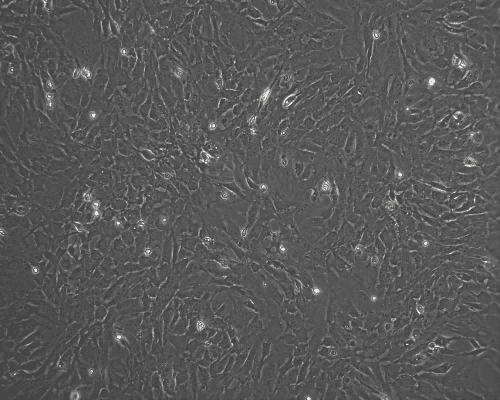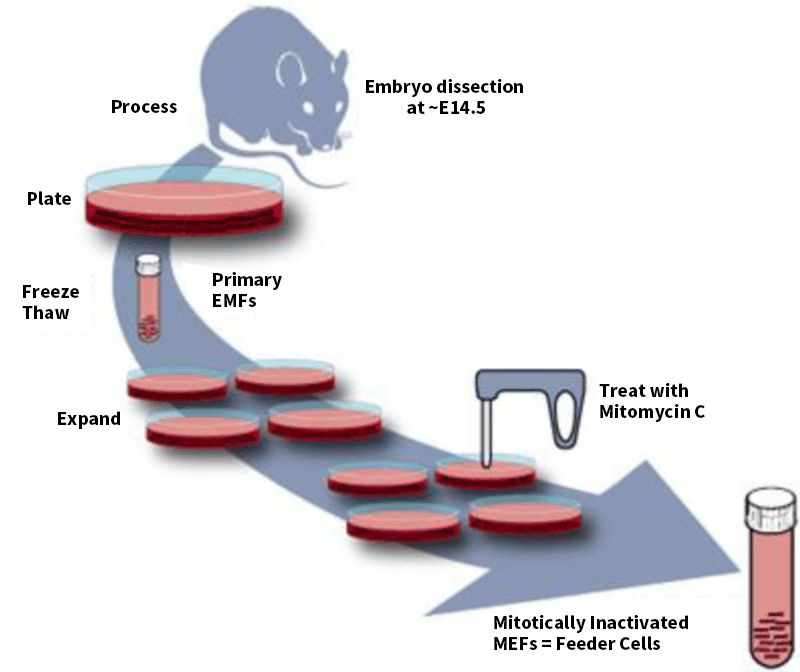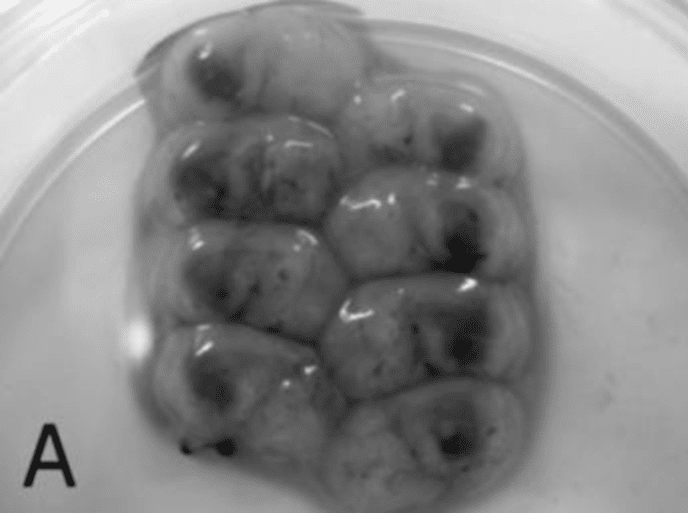- Your cart is empty
- Continue Shopping
Other Services
GemPharmatech also provides other services, including animal facility hosting services, isolation of embryonic fibroblasts, reproductive technology training and customization services.
OTHER SERVICES
Animal Facility and Husbandry
Located in Nanjing, China, GemPharmatech’s animal facility has a floor area of 10,000 square meters and holds nearly 80,000 cages. Equipped with advanced equipment, automatic cage washers, sterilization equipment, automatic water delivery systems and a monitoring access control system, it ensures energy efficiency, intelligence and multi-functionality. It is a premier facility for laboratory animals. GemPharmatech also has animal facilities in Changzhou (Jiangsu Province), Foshan (Guangdong Province) and Chengdu (Sichuan Province), with a total floor area of about 30,000 square meters and 230,000 cage capacity.
GemPharmatech has completed the on-site evaluation conducted by the Jiangsu Administrative Office of Laboratory Animal and is the first company in Jiangsu Province to be licensed to commercialize germ-free lab animals. We offer professional facility administration and husbandry staff of 81 team members.
With the combination of a strong training system, standardized operations, stringent environmental and microbiological monitoring, and an efficient project management system, we provide customers with a top notch experience.
Breeding Facilities
Our breeding facilities offer breeding system design, breeding plan formulation, mouse mating and breeding, cage splitting, tail biopsy collection, and identification. Highly qualified technicians guarantee quality and cleanliness. Our project management system allows real-time monitoring of the breeding process and the provision of live breeding services under the client’s breeding scheme.
Our facilities offer:
- Breeding program customization
- Biopurification
- Embryo transplantation and rapid colony expansion
- Assisted reproduction
- Infertile strain rescue/endangered strain rescue
- Cryopreservation and resuscitation
- Embryo recovery
- Routine Laboratory Operations
Strains can be purified and saved through in vitro fertilization, ovarian transplantation, and artificial insemination. Embryo transplantation can be used to rapidly expand colonies, shortening the duration of research. We utilize state-of-the-art equipment and automated systems. Frozen samples are stored in gas-phase tanks to prevent cross-contamination. These tanks are equipped with a sample management system for automatic filling and warnings. Our proprietary system for sperm cryopreservation is more efficient than manual freezing.Our team can carry out the entirety of the experiment anchoring procedure, including the design of the preliminary auxiliary experimental scheme and the operation of the subsequent experiments.
Reproductive Technology, Custom Embryology Services and Training
Reproductive technology training
Training content: Our embryology team at GemPharmatech (Nanjing, China) provides external technical training, The embryo manipulation techniques include Sperm and Embryo cryopreservation and resuscitation, Embryo Transfer,In Vitro Fertilization,Pronuclear Microinjection.
Training Date: The company organizes two external training sessions every year, with one session at the end of April (Spring session) and the other at the end of September (Autumn session).
Application: Training information will be published through the WeChat Official Account: GemPharmatech.
Customized embryology services
Introduction
In addition to the standard service of model animal production, custom embryology services are available.Providing embryos at various gestational stages,Validating experiments of reagents or drugs embryonic development ,Biopsy of polar body , 4-8-cell embryos during cleavage stage for genetic diagnosis and screening, Embryo implantation verification, Separating the implanted embryo at different developmental stages and early embryonic organ.
Services
- Embryo supply and validation of reagents or drugs in embryonic development stages: We can provide embryos at various gestational stages or test the effect of a reagent or drug in vitro and in vivo on embryonic development, including providing detailed experimental data and photos taken at multiple embryonic development stages using different magnifications (100x,200x,400x).
- Biopsy of blastomere for genetic diagnosis and screening: We use a specific microscopic biopsy needle to extract polar body from a MⅡ oocyte, extract a blastomere from 4-8-cell mouse embryo for gene identification to determine whether the embryo is at risk of carrying disease-prone genetic mutations, and select normal embryo(s) for transplantation to reduce congenital defects. This can be done for pre-implantation genetic diagnosis (PGD) or screening (PGS) purposes.
- Embryo implantation verification: We can identify the implantation site of an embryo and determine the implantation and developmental status by injecting dye into the caudal vein.
- Separation of the implanted embryo at different phases of development and early embryonic organ: This can be done to analyze the implantation and gestation conditions of genetically modified embryos, which is important for the study of low birth rate and fertility rate. Early embryonic organ may be isolated and used to study process of embryo development at specific stages of pregnancy.
Strengths
- Rich technical experience:The technical team has more than 15 years of extensive practical experience and theoretical expertise. Our performance in embryology service practices, such as in vitro fertilization rate and embryo transfer rate, exceed industry standards.
- More professional: We offer a comprehensive set of reproductive technology services for mouse, including in vitro fertilization, Sperm and Embryo cryopreservation, pronuclear microinjection, and ovary transplantation,Intracytoplasmic sperm injection. And our team have ability and level of independent research and development. The new assisted reproduction technologies can be customized to meet customer requirements.
- High throughput: Our team are equipped with several large capacity gas-phase liquid nitrogen tanks, microinjectors, and proprietary sperm cryopreservation apparatuses, in addition to other sophisticated equipment.
- Quick responsiveness: For customized embryology services, scheme and quotation could be provided within one working day. Our team can also provide the oretical support for the experimental scheme.
- Comprehensive service capabilities: The reproductive technology course is one-on-one training, The technical team not only training embryo manipulation techniques,also could provide support at the usual questions , such as laboratory animal facility and regant or animals microbiological testing.
| Agents |
Essential test items for SPF-grade animals specified by national standards |
All test items for SPF- grade animals specified by national standards |
Methods |
|||
| Microscopy | Culture | ELISA | PCR
(qPCR) |
|||
| VIRUS | ||||||
| Ectromelia Virus (ECT) | ● | ● | ✔ | ✔ | ||
| Mouse hepatitis virus (MHV) | ● | ● | ✔ | ✔ | ||
| Sendai virus (SV) | ● | ● | ✔ | ✔ | ||
| Pneumonia virus of Mouse (PVM) | ● | ● | ✔ | ✔ | ||
| Reovirus type 3 (Reo-3) | ● | ● | ✔ | ✔ | ||
| Minute virus of Mouse (MVM) | ● | ● | ✔ | ✔ | ||
| Lymphocytic choriomeningitis virus (LCMV) | ● | ✔ | ✔ | |||
| Hanta virus (HV) | ● | ✔ | ✔ | |||
| Theiler’s mouse encephalomyelitis virus (TMEV) | ● | ✔ | ✔ | |||
| Mouse adenovirus type 1 (FL) & 2(K87) | ● | ✔ | ✔ | |||
| Polyoma virus (Poly) | ● | ✔ | ✔ | |||
| Mouse Norovirus (MNV) | ✔ | ✔ | ||||
| Mouse cytomegalovirus (MCMV) | ✔ | |||||
| Epizootic Diarrhea of Infant Mice (EDIM) | ✔ | |||||
| K virus (K) | ✔ | ✔ | ||||
| Mouse Parvovirus (MPV) | ✔ | ✔ | ||||
| Lactate dehydrogenaseelevating virus(LDV) | ✔ | |||||
| Mouse kidney parvovirus(MKPV) | ✔ | |||||
| BACTERIA | ||||||
| Salmonella spp. | ● | ● | ✔ | ✔ | ||
| Corynebacterium kutscheri | ● | ● | ✔ | ✔ | ||
| Pasteurella pneumotropica | ● | ● | ✔ | ✔ | ||
| Klebsiella pneumoniae | ● | ● | ✔ | ✔ | ||
| Staphylococcus aureus | ● | ● | ✔ | ✔ | ||
| Pseudomonas aeruginosa | ● | ● | ✔ | ✔ | ||
| Streptobacillus moniliformis | ● | ✔ | ✔ | |||
| Streptococcus pneumoniae | ● | ✔ | ✔ | |||
| β-hemolyticstreptococcus | ● | ✔ | ✔ | |||
| Escherichia coli O115 a,C,K(B) | ● | ✔ | ✔ | |||
| Klebsiella oxytoca | ✔ | ✔ | ||||
| Citrobacter rodentium | ✔ | ✔ | ||||
| Proteus mirabils | ✔ | ✔ | ||||
| Pasteurella multocida | ✔ | ✔ | ||||
| Corynebacterium bovis | ✔ | ✔ | ||||
| Mycoplasma spp. | ● | ● | ✔ | ✔ | ||
| Clostridium piliforme (Tyzzer’s) | ● | ● | ✔ | ✔ | ||
| Cilia-associate respiratory bacillus | ✔ | ✔ | ||||
| Yersinia enterocolitica | ● | ✔ | ||||
| Yersinia pseudotuberculosis | ● | ✔ | ||||
| Pathogenic dermal fungi | ● | ✔ | ||||
| Helicobacter spp. | ✔ | |||||
| PARASITES | ||||||
| Ectoparasites | ● | ● | ✔ | |||
| All Helminths | ● | ● | ✔ | |||
| Flagellates | ● | ● | ||||
| Ciliates | ● | ● | ||||
| Toxoplasma gondii | ● | ● | ✔ | |||
| Encephalitozoon cuniculi | ● | ✔ | ||||
| Pneumocystis carinii | ● | ✔ | ||||
| Entamoeba | ||||||
2. Sterility test
| Testing Items | Methods |
|---|---|
| Germ-free mouse testing | Isolation culture |
| Feed sterility testing | Isolation culture |
| Bedding sterility testing | Isolation culture |
| Drinking water sterility testing | Isolation culture |
| Environmental swab for sterility testing | Isolation culture |
| Colony testing | Isolation culture |
Isolation of Embryonic Fibroblasts from Primary Cultures of Mouse Embryos

Mouse embryonic fibroblasts
Strengths
Strict quality control and assurance: Bacterial, fungal, and mycoplasma tests are carried out to guarantee cells are clean and free of contamination.
Rich experience: GemPharmatech has years of experience preparing embryo fibroblasts.
Multiple products in stock: Stocks of mouse embryo fibroblasts engineered with neomycin, hygromycin or puromycin are available for in-house use and externa customers.
Outline of experimental procedure
Mouse embryos are collected at E13.5 gestational age. Trunk tissue are processed with enzymatic digestion in the presence of chelating agent (usually EDTA) to obtain single-cell embryo fibroblasts. These are cultured in MEF growth medium so that fibroblasts can survive, grow, and proliferate.

Isolation of fibroblasts from mouse embryos and preparation of feeder layer cells

Mouse embryos at 13.5-day gestational age

Mouse embryonic fibroblasts
For more information, please contact us [email protected]
Want To Inquire About The Services?
Contact Us

THE ATLANTIS BIOSCIENCE DIFFERENCE Discover Translational Solutions To Advance From Bench to Bed
GET SUPPORT Whenever You Need It

QUESTIONS IN YOUR MIND?
Connect With Our Technical Specialist.

KNOW WHAT YOU WANT?
Request For A Quotaiton





